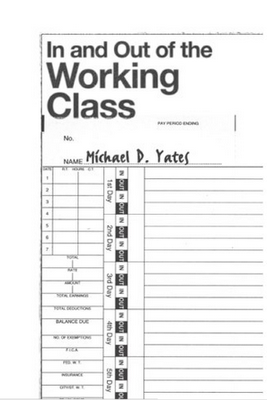In and Out of the Working Class

To be perfectly honest, I have not read any of Michael Yates’ other work, and only know his name as a radical economist. I was interested in In and Out of the Working Class to see how he would turn his lens of analysis on his own life, in hopes that he would not only tell his own story, but illuminate the world that we all inhabit. This reading of the personal as political is an important part of feminist writings, and I was curious how Yates, as a radical economist, would present the personal.
Yates succeeds in using an economic lens to place his own life within the capitalist class system. He traces his family’s history as immigrants, workers in western Pennsylvania’s factory and mining towns, and his trajectory towards academia. While Yates' stories of unionization, poverty, and the travails of youth point us toward an understanding of his own class position and politicization, his writing tends toward the nostalgic.
What I took away from Yates’ many stories—most non-fiction, with a few fictional narratives thrown in—was a determination to reinvigorate class struggle in America. I appreciated his attention to the differences and similarities of work in factories and work in universities, drawn out in a useful and coherent manner. Yates never loses his sense of purpose in helping the reader come to an understanding of all kinds of work as part of the same capitalist system, which he paints so clearly as unjust.
Yates’ purpose, however, falls short of bringing new and exciting ways of understanding work, class, and poverty. His autobiography feels, at times, self-indulgent; I remain unconvinced that his story is the one that we all need to read. At the same time, for those well acquainted with Yates' work, it may be of interest. I found it more useful as a model for what we each could do to examine our own lives and role in movements for economic justice.
Hello I enjoyed reading your review. I am very interested in economics. I am reading John Kenneth Galbraith, who is far from radical but has interesting things to say. I read one of his books in the 1970s but now I am reading his books on the Depression. I have not read any Yates either, but I will now. I am finding that economists like to analyze their lives in economic terms, just as psychiatrists like to explore their opinions in psychodynamic terms. Frances